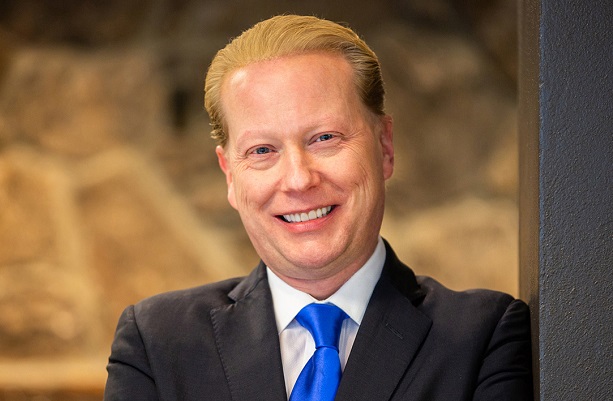WINSTON-SALEM, NC—Hunt Real Estate Capital recently secured a $38.2 million Freddie Mac conventional lease-up multifamily loan for EBSCO West End's purchase of a mid-rise apartment building here.
EBSCO West End, a wholly owned subsidiary of EBSCO Income Properties, LLC, acquired the 229-unit property from a joint venture between The Carlyle Group and Chaucer Creek Capital.
The loan was funded through Freddie Mac as part of a pre-stabilization program for new construction properties in lease-up. The property is targeted to reach stabilization in early 2020.
Chad Hagwood, senior managing director at Hunt Real Estate Capital, tells GlobeSt.com that Winston-Salem is a somewhat unique multifamily market in that it is experiencing robust employment, income and demographic growth, but has not been oversaturated with Class A multifamily development.
"As a result," Hagwood says, "recently delivered properties such as West End Station have experienced extremely strong leasing activity. The last four deals to lease up averaged 23 leads per month, with 7.5 months time to reach stabilization – West End Station, with a fantastic location and amenity package, was tracking at 25 leads per month."
Hunt's research shows Winston-Salem is experiencing robust employment, income and demographic growth, contributing to the development of increased demand for multifamily space, faster rent growth and greater property market activity. In 2019, metro payroll employment increased 2.2%, faster than Raleigh-Durham (1.7%) and in the same league with Charlotte (2.5%), one of the strongest multifamily markets in the country. Personal income growth over the last three years averaged nearly 4.5%, about 1% faster than the metro's historical average and near parity with the U.S. mean following a long period of relative underperformance.
"EBSCO is a repeat Freddie Mac and Hunt Real Estate Capital client, and I've had the pleasure of working with this experienced borrower on numerous transactions over the course of my career," Hagwood says. "West End Station is a best-in-class asset in an expanding market, and the Freddie Mac Lease Up loan was the best solution to ensure a seamless transition into stabilization."
Walkability has become an important amenity for new multifamily development, especially those catering to working professionals, according to Hagwood. Renters, priced out of central neighborhoods, are flocking to pedestrian-friendly urban neighborhoods in smaller metro areas. This is one reason the population of Winston-Salem has increased in recent years, he says.
Population trends also are markedly improved. During the three-years ended in 2018, net domestic in-migration to Winston-Salem MSA totaled 10,835 persons, according to Census data, an increase of 114% relative to the preceding three-year period (2013 to 2015), testament to the metro's growing appeal to relocating U.S. households.
Improving employment, income, and demographic growth contributed to strong, stable apartment market performance. In spite of adding at least 317 new units last year (1.3% of existing stock) occupancy of a 127 Winston-Salem property same-store sample surveyed by Yardi Matrix was 94.64% during 4Q19, a decrease of only 7 basis points year-on-year. Reis reported Greensboro/Winston-Salem average year-end occupancy on 94.5% in 4Q19, equal to the comparable metric for Raleigh-Durham and 110 basis points higher than Charlotte.
Greensboro/Winston-Salem occupancy fell 60bps in 2019, compared to respective attrition of 60bps and 90bps for Raleigh and Charlotte.
Winston-Salem 4Q19 same-store sample effective rents were 5.09% higher year-on-year, representing the sixth consecutive quarter of 4% or faster growth. Class-A rent trends were notable, having increased 5.21% year-on-year in 4Q19, equal first among metro quality segments with class-B, new supply notwithstanding. Greensboro/Winston-Salem average rents increased 4.2% last year, according to Reis, compared to 5.4% and 6.2% respective gains for Charlotte and Raleigh-Durham.
Investors responded by acquiring a record number of Winston-Salem apartment properties and units in 2019. Yardi reports that buyers closed on 24 investment sales transactions consisting of 3,951 total units, representing increases of 118% and 77% over 2018; series records in each case. Total sales volume ($272 million) and average unit price ($68,838) metrics also established series highs, breaking previous records by 64% (2017) and 17% (2018), respectively. Investors also paid the highest price ever for a metro multifamily property last year — $229,300 per unit – in December.
© Touchpoint Markets, All Rights Reserved. Request academic re-use from www.copyright.com. All other uses, submit a request to [email protected]. For more inforrmation visit Asset & Logo Licensing.






